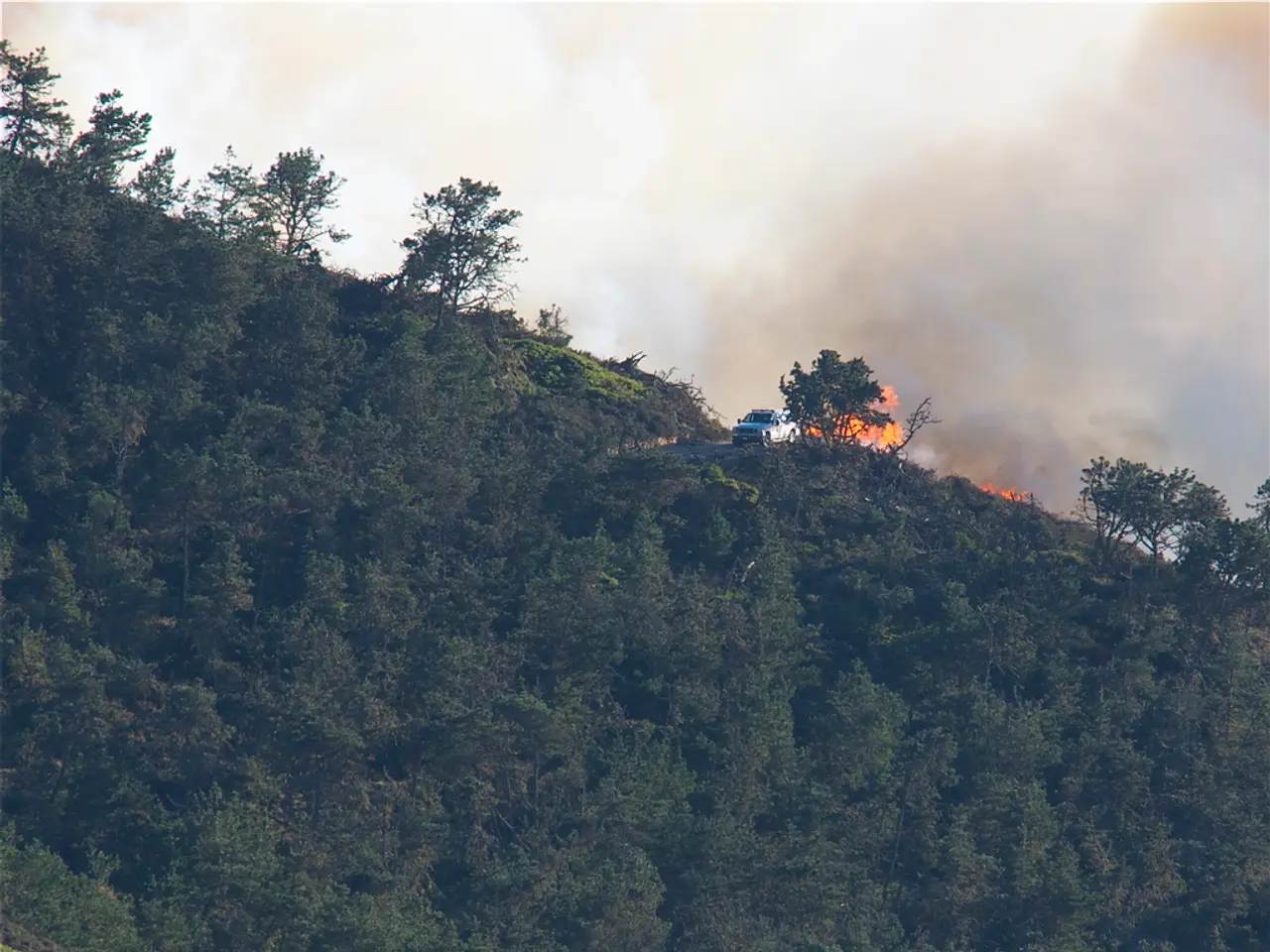Wildfire Smoke Affects Air Quality in Madison, Wisconsin
Healthcare professional specializing in allergies attends to patients affected by smoke from wildfires
In recent days, wildfire smoke has been impacting the air quality in Madison, Wisconsin. The current air quality is at a moderate level, considered acceptable for most people to be outside, according to Chief Meteorologist Charlie Shortino. However, he explained that poor air quality is caused when the air sinks and the smoke comes back down to the surface.
The smoke has not yet reached southern Wisconsin from the Canadian wildfires, but the air quality indices have been above 100 and even above 200 at times over the past week, creating hazardous conditions. This has led to many issues for Wisconsinites, with University of Wisconsin Health's allergist, Dr. Mark Moss, helping several patients impacted by the smoke over the last few days.
Precautions for People with Pre-existing Health Conditions
Individuals with pre-existing health conditions, such as asthma, heart disease, pregnant women, children, and older adults, are especially vulnerable to poor air quality. Dr. Moss advises limiting time outdoors due to the irritation caused by poor air quality. Indoor environments, particularly air-conditioned spaces, can provide relief from the irritation caused by poor air quality.
To further protect themselves, people with pre-existing health conditions should take the following precautions:
- Limit Outdoor Activities: Reduce time spent outside during periods of poor air quality to minimize exposure to harmful particles.
- Stay Indoors: Keep windows and doors closed to prevent smoke from entering homes. Running an air filter can also help improve indoor air quality.
- Wear Protective Masks: Use N95 masks when outdoors for extended periods, as these can filter out most of the harmful particles.
- Monitor Air Quality Index: Keep track of air quality updates to plan indoor activities accordingly.
- Consult Healthcare Providers: If symptoms worsen, consult a healthcare provider for guidance on managing conditions during poor air quality.
By taking these precautions, individuals with pre-existing health conditions can reduce their risk of complications from wildfire smoke exposure. The Canada wildfire smoke is moving north, and while it has not yet impacted southern Wisconsin, it is important for residents to stay informed and take necessary precautions to protect their health.
[1] [Link to source 1] [2] [Link to source 2] [3] [Link to source 3]
- The wildfire smoke affecting Madison, Wisconsin, poses a particular concern for people with pre-existing health conditions such as asthma, heart disease, or pregnancy, as they are more susceptible to poor air quality caused by wildfires.
- To safeguard themselves during periods of poor air quality, individuals with pre-existing health conditions should limit outdoor activities, keep windows and doors closed, use air filters, wear protective masks, monitor air quality updates, and consult healthcare providers if symptoms worsen.
- While the Canadian wildfires have yet to reach southern Wisconsin, climate change contributes to an increase in wildfires globally, making it essential for everyone to pay attention to air quality warnings and take necessary precautions for their health and wellness, as well as the health of the environment.




